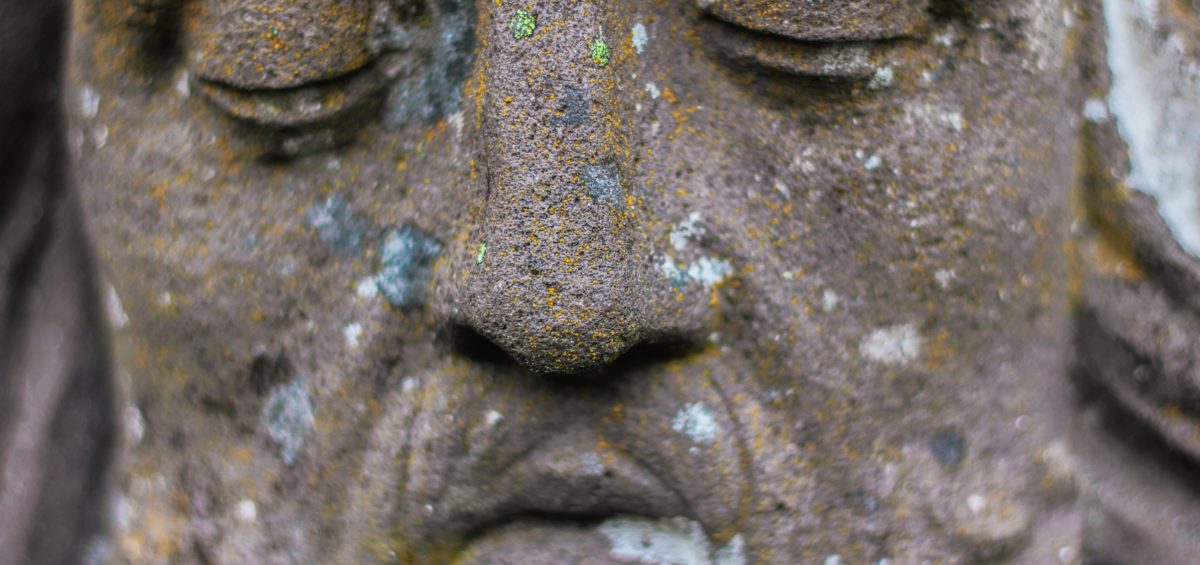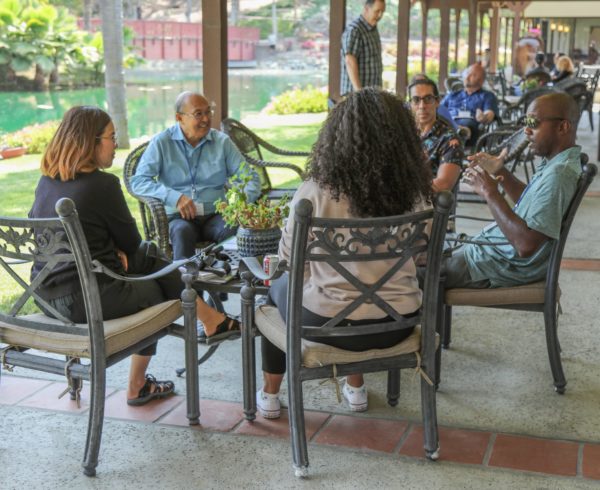The day is finally here
I am excited to get to today’s topic. In my new series on my evolving and expanding understanding of the Christian faith, I have introduced key concepts about an evolving faith, the importance of growing and learning as Christians, and why certain ways of framing Christianity are harmful to our lives and should be left behind.
In today’s post in this new series, I am introducing one of my favorite topics to write and talk about–Jesus’ death on a cross. I’ll be sharing some of the backstory of how my understanding began to expand and deepen. For me, this topic is extremely important and really deserves multiple posts. There’s so much that can be said that it’s hard to pick a starting point, but I must.
A long time ago one Sunday morning
I was likely sixteen years old at the time, very serious about my faith in Jesus and very involved in my local church. After having a dramatic reconversion to faith in Jesus mid-high school at a summer camp, I had zealously left behind my nominal days of youthful shenanigans and became a passionate Christian evangelist.
While I was very zealous as a young Christian, I also had unsettling questions that came to the surface from time to time–questions about the Bible, church doctrine, the inner workings of church ministry, and many contemporary methods of sharing the gospel that were common for evangelical churches like mine.
Understand that up until this point in my life, I had likely heard the gospel preached a few hundred times (perhaps even a few thousand). This particular Sunday morning, my pastor finished his sermon and then turned his attention to sharing a brief summary of the gospel (as good pentecostal evangelicals often do leading up to an alter call).
I remember hearing him say something along the following lines of the following: “Sin cannot be in the presence of a holy God. All of us have sinned and the penalty of our sin is eternal death. That is what we deserve. The only way for our sin to be forgiven and atoned for is if a perfect holy human being died in our place. Since we’re all sinful, none of us could have atoned for our sins. So God had to do it himself. He sent Jesus, the perfect holy human being to be our substitute, to die in our place. But this was God’s plan all along. It was God’s will for Jesus to die for our sins even before creation itself. It wasn’t Pilate’s fault or the Judeans fault who yelled out “crucify him.” They were only served to act out God’s plan from the beginning of time. THE reason Jesus came to earth was to die for our sins that we might be forgiven of our sins so that we can go to heaven. You cannot go to heaven and be in God’s presence if your sins aren’t forgiven.”
None of what I heard him say that Sunday was new information to me, BUT those words fell differently on my ears that particular Sunday morning. It was then that questions began to surface about the common formula we called “the gospel.” It wasn’t that I stopped believing in Jesus or somehow assumed the Christian faith was a sham. It was that certain things began to pose problems for me because they seemed to sell short the very way the Passion narratives in the four Gospel accounts told Jesus’ story.
While I remained a Christian that day and served in Christian communities for many years, I began to be honest about some of the questions that gospel formula raised for me. Here are a few of them:
- “If it was God’s will for Jesus to die, and if God planned Jesus’ death before time, then why does the Bible describe Pontius Pilate as being responsible for Jesus’ death?
- And how about the fact that a large crowd of his own people in Jerusalem had called for Pilate to “crucify him!!!”
- Didn’t all of these people share some kind of responsibility?
- If we say it’s both, how could Jesus’ death be both God’s will and the will of people?
- And why was God’s formula for forgiving and atoning for sin that a perfect human being should die?
- And if this was the formula God chose to forgive sin, then of course I’m glad Jesus died for my sin so that I didn’t have to, but why couldn’t God just decide to forgive people without the death of an innocent person?
- Why does God need bloodshed to forgive?
- And for that matter, if the main reason Jesus came to earth was to die so my sins could be forgiven and I could go to heaven when I die, then what were all of the real-life events from Jesus’ life leading up to Jesus’ death even about? Why not kill Jesus many years earlier? Why not kill him using another method?
- What were the historical events and characters intended for that we read about in Matthew, Mark, Luke and John’s gospels?
- If God just needed the blood of a perfect human being to be shed, why the drama before hand?
- And now that we’re on that question, why did God choose this particular point in history to send Jesus to?
- What was so special about sending Jesus to die for our sins in Israel during the first century?
- Did God know that if he sent Jesus to Israel in the first century that the Romans would crucify him?
- Why, out of all the options for the death penalty that existed in the world, was Roman crucifixion God’s chosen method to kill Jesus?
- In what sense could crucifixion, a horrendous and tormenting way to die created by the Romans, God’s will?
- Are you telling me this kind of death was not only chosen by God, but it was chosen by God before he even created the world?
- Again, how can we criticize the Romans if it was God’s will?
- Why call them barbaric if it was God’s will after all?
- Is God barbaric then?
- Does God have a dark side?
- And if crucifixion was God’s will, does this mean that God somehow forced the Romans to kill Jesus?
- Did God take over the wills and bodies of Roman soldiers and force them to kill Jesus?–because after all, wasn’t it already God’s will before creation for Jesus to die for our sins by means of Roman crucifixion?
I imagine some people reading right now going “Man, Peter! Chill out buddy. You have had some serious overthinking going on in your life.” And I would agree. At the same time, I had come to believe in Jesus and trust him. So if the Bible and the Christian faith were true, I wanted to take everything seriously. Nominal Christianity was no longer an option. Like the apostle Peter who once said “If you need to wash my feet Lord, then wash my hands and head as well,” I wanted to be the first in line ahead of the other disciples listening to Jesus and doing what he asked of me. And for me, part of the point to following Jesus meant understanding the very message of the gospel he had entrusted us to share with others.
At the same time, as you can imagine or maybe you’ve experienced this yourself, asking questions, especially ones that tend toward existential crises cause incredible amounts of anxiety and stress. And when we are that stressed by those kinds of questions, we sometimes we don’t know what to do.
The only thing that has made sense to me in those times is to pray and acknowledge, “I don’t know God. But I choose to trust You with what I don’t know. And when you feel I am able to get it, please open my eyes to see and understand.” My prayers aren’t always that eloquent, sometimes they involve “WTF God?” and other choice words, but you get the point.
2 Essential Truths
Btw, if you had assumed I was going to answer that long list of questions either in this post, I’m sorry to disappoint. I’m not. I may get to some of them in a future post. However, there were two essential truths (or rather, filters for understanding truth about Jesus) I had begun to notice in time that would continue to resurface over the next ten to twenty years.
Here they are:
Number 1. So much of the way the gospel has been presented in church (in my experience at least) didn’t take seriously the way the four gospel writers of the Bible (Matthew, Mark, Luke and John) actually presented the story of Jesus’ life, mission, teaching, death and resurrection.
Number 2. Any attempt at understanding Jesus’ death for human sin, whatever that means, should mean, or could mean, must (and should) take into serious consideration the way the gospel writers actually presented Jesus’ whole life and ministry.
I would revisit these two filters for understanding the gospel over and over again in the following years, and I am happy to report, I now have all the answers to my questions about Jesus down pat. Not really.
The truth is that while I have arrived at some honest answers to those questions, I don’t claim to have God or all the mysteries of the universe figured out (though sometimes I pretend to). Yet, I do believe that my evolving and expanding understanding of Jesus’ death on a Roman cross is, in some sense, truer than it has ever been, and much of this deepening understanding has been due to those two filters I just mentioned above.
That is all for now. In my following blog post, I will further explore the topic of Jesus’ death. I hope it will encourage and perhaps challenge you to expand your thinking a bit as well.
Peter
Here’s the Atonement Series Title Line-Up from start to finish
- My evolving understanding of Jesus’ death
- FaithRethink Series Returns (page you’re on now)
- 7 atonement theories from church history
- Hijacking the Biblical Story of the Atonement
- Reengaging with the Bible’s Biggest Themes
- 7 Bible Stories you think you know but don’t
- Cruciform atonement theory: How Jesus’ death on a Roman cross changes everything
- Questions and answers about the atonement
For more blog posts on Jesus, faith, and following Jesus today, visit my blog.
For videos (short vlog posts), visit my media posts.
To purchase my course on evolving Christian faith, go here.







